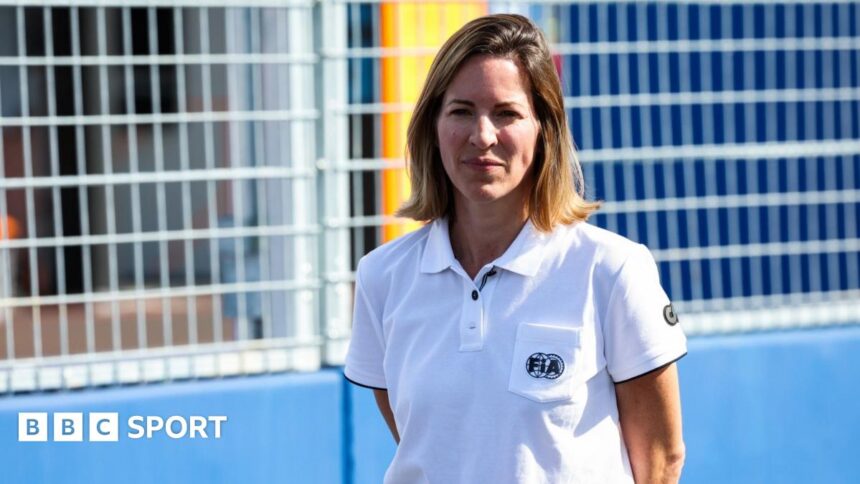Reid’s resignation and Robyn’s decision to go public are significant developments in the ongoing saga of controversies that have unfolded around Ben Sulayem in the past three years.
They are the first of the significant number of people who worked closely with Ben Sulayem within the FIA who have since left to voice their criticisms of his management style and the direction in which he is taking the governing body.
Whether coincidentally or not, they also come as Ben Sulayem attends his first grand prix of the new F1 season.
Ben Sulayem heads to Bahrain this weekend hoping to convince the sport’s engine manufacturers to back his plan to abandon the 2026 engine rules early and switch to naturally aspirated V10s run on sustainable fuel as soon as possible.
There appears to be no hope of Ben Sulayem succeeding in this ambition.
To be approved, his plan would need the support of four of the five 2026 engine manufacturers. And while Ferrari and Red Bull are in favour, Mercedes, Honda and Audi are not.
The most likely outcome of Friday’s meeting of the FIA, F1 and the engine manufacturers is an agreement to keep talking on the future direction of engines in the sport.
But Honda, Mercedes and Audi are all wedded to the idea of some hybrid element in the future, and there appears to be no prospect of this changing.
Ben Sulayem has not explained why he is so keen to change F1’s engine formula, although it is known that there is widespread concern within the sport about the new engine rules and their potential effect on racing.
After all, it is only two years since he was proclaiming the 2026 rules a great success that had attracted Audi and Ford to F1 and persuaded Honda to stay when it had been planning to withdraw. He has also been instrumental in General Motors’ 2026 entry with its Cadillac brand.
The strategic reasoning behind the move is also hard to fathom. Although it is known that Ben Sulayem has been listening to former F1 boss Bernie Ecclestone – a long-time opponent of hybrid engines – on the matter, and that Red Bull team principal Christian Horner is also a key proponent.
Why Ecclestone’s views are considered relevant eight years after he was ousted as F1 CEO is also unknown.
Mercedes, Audi and Honda were never likely to agree to abandoning an electrical component to engines, so Ben Sulayem was always likely to face defeat on his plan.
The FIA has spoken of trying to future-proof the sport against a global economic downturn that could risk the manufacturers pulling out – and that was before US president Donald Trump’s tariffs made one more likely. And privately they are telling stakeholders that they want to prevent engines being a performance differentiator in the future.
The problem with that reasoning is that changing to naturally aspirated engines would guarantee the departure of at least two of the 2026 manufacturers. And engines have always been a performance differentiator.
The question now is whether these latest developments have any impact on the forthcoming FIA presidential election in December.
Insiders say Ben Sulayem’s support is solid. Indeed, some of the ways in which he has been trying to shore it up – for example, by offering financial incentives to motorsport clubs – are involved in the departures of some of the key figures who have left the FIA in the last year or so.
So far, no one has come forward to oppose Ben Sulayem, but sources close to the FIA say that at least one potential candidate is in the wings.
Beating Ben Sulayem, in the context of the FIA electoral system, will not be easy for anyone, whoever they are.
Source link : https://www.bbc.com/sport/formula1/articles/cql66wv234go
Author :
Publish date : 2025-04-10 12:58:00
Copyright for syndicated content belongs to the linked Source.










